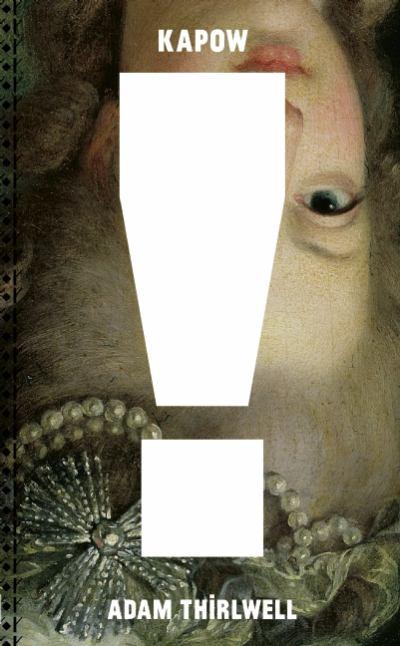For it's formal innovation and gutsy story, we reviewed Adam Thirwell's Kapow! twice
Standard blurbs are nowhere in sight, the cover stock feels DIY, like a pamphlet you’re meant to pass around. On the front, an oversized exclamation point slaps Marie Antoinette upside the head. There’s no summary on the back – just a foot kicking in glass.
Reading Kapow! requires literal page rotations. Well tucked pages unfold from the spine like surprise accordions. A bespoke typographic symbol marks divergent narrative paths that slice through blocks of body copy. When we first meet out paunchy, jet-lagged unnamed narrator, he’s doped-up, over-caffeinated and in the midst of an unclear crisis. He’s aware that “everywhere they were starting revolutions, or trying,” but he’s not convinced he cares.
Sarah Handelman on Kapow!'s form as it blends with content in
The Revolution Unhinged
A year and a half after the Jan. 25 uprising, the military remains in charge, no real parliament exists, and the new president’s powers are so stunningly limited you can easily overlook how the country’s sham political process might have collapsed had the military declared his counterrevolutionary opponent the victor. The political scenery looks a little different, but democratic self-determination returns to the carrot’s place on the end of the stick, a promise dangled in front of the country to tease it forward, always held a little out of reach. Welcome back, ya Masr.
Has there ever been a revolution that didn’t betray anybody, that didn’t lose sight of its beginnings, that didn’t spun out of control so far, so fast that it went careening completely out of sight?
Matt Pearce looks at (post-)revolutionary Egypt in light of Thirwell's novel in
The Revolution Goes Kablooie
